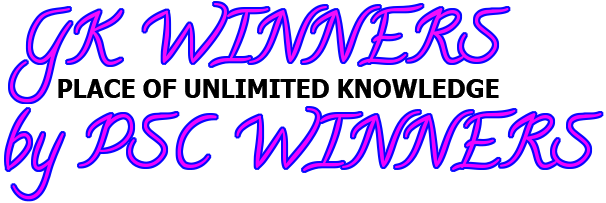PEDAGOGY - CHILD PSYCHOLOGY - 1

(a) Personality (b) Intelligence
(c) Aptitude (d) Attitude
Answer: (B)
2. Educational Psychology is regarded as a branch of
(a) Comparative psychology (b) Applied psychology
(c) General Psychology . (d) Both a&c
Answer: (B)
3. Single factor theory of intelligence was put forwarded by
(a) Alfred Binet (b) Thorndike
(c) Freeman (d) None ofthem
Answer: (A)
4. Which theory of language development suggests that children learn language by imitation and in reaction to reinforcement?
(a) behaviorist (b) Gestalt
(c) cognitive (d) Social constructive
Answer: (A)
5.According to which theorist is symbolic thought a precondition forlanguage acquisition? (a) Chomsky (b)Piaget
(c) Skinner (d) Vygotsky
Answer: (B)
6.According to which theorist do thought and language originate independently, but later merge?
(a) Chomsky (b) Piaget
(c) Skinner (d) Vygotsky
Answer: (D)
7.Which theorist places the most importance on social interaction in the development of language?
(a) Chomsky (b)Piaget
(c) Skinner (d) Vygotsky
Answer: (D)
8.The personality test that presents an ambiguous stimulus picture to which the person may respond as he or she wishes is
(a) Alfa Battery (b)Rorschach.
(C)DAT (d) None of the above
9. In teaching any class or subject, student's needs and interests also have to be born in mind. Which of the following dimensions cover this aspect?
(a) The psychological dimension
(b) The evaluation dimension
(C) The philosophical dimension
(d) The methodological dimension
Answer: (A)
10. Which among the following is associated with the term 'shaping of behaviour
20. Which of the following is a difference between the theories of Piaget and Vygotsky?
10. Which among the following is associated with the term 'shaping of behaviour
(a) Classical conditioning (b) Cognitive learning
(C) operant conditioning V (d) Gestalt Learning
Answer: (C)
11. The two most important characteristics of a standardized test
are (a) reliability and validity (b) reliability and accuracy
(c) accuracy and equality (d) practicality and validity
Answer: (A)
12.What is the name for the operant conditioning technique in which complicated behaviors are taught by sequential reinforcement?
(a) instructing (b) shaping
(c) leading (d) scaffolding
Answer: (B)
13. Which of the following learning theory is called instrumental learning?
(a) Trial & error learning (b)Operant conditioning
(c) Classical conditioning (d) Cognitive learning
Answer: (B)
14. Which one is the highest stage of Gagne's Hierarchical structure of learning?
(a) Rule learning (b) Chaining
(c)Problem solving (d) None ofthese
Answer: (C)
15.Which stage ranges from 4-7 years in Piaget's cognitive development?
(a) Pre-operational stage (b) Sensory Motor stage
(c)Formal Operation Stage (d)None of these
Answer: (A)
16. Which of the following is important in operant conditioning?
(a) Animmediate reinforcement (b) Holistic perception
(c) Scaffolding (d)None of the above
Answer: (A)
17. The concept of insight learning was advocated by
(a) Cognitive Psychology (b)Behaviorist Psychology
(c) Gestalt Psychology (d) All the above
Answer: (C)
18. Which of the following is not a characteristic of concrete operational thinking?
(a) ability to think abstractly
(b) ability to conserve
(c) ability to think logically about real things and events a
(d) ability to engage in classification
Answer: (A)
19. Which of the following is a defining characteristic of formal operational thinking?
(a) abstract thinking (b) object permanence
(c) intuitive thought (d) conservation
Answer: (A)
20. Which of the following is a difference between the theories of Piaget and Vygotsky?
(a) Piaget places greater importance on the role of language in cognitive development.
(b) Vygotsky places greater importance on the role of language in cognitive development.
(c) Piaget did not believe in distinct stages of cognitive development,
(d) Piaget was a social constructivist.
Answer: (B)
21. Define Identity:
(a) It is our feeling about somebody else
(b) A sense of oneself as a unique person
(c) Observation of the society about yourself
(d)None of the above
Answer: (B)
22. According to ---------------, we face a specific psychosocial dilemma a teach stage of life. (a) James Coleman (b) Lawrence Kohlberg
(c) Erikson (d) Sigmund Freud
Answer: (C)
23. Attempting to prove that one's behaviour is 'rational and justifiable and thus worthy of selfand social approval:
(a) Identification (b) Rationalization
(c) Projection (d) Sublimation.
Answer: (B)
24. Which of the following meanings of psychology would be correct as perthe views of Skinner & Thorndike
(a) It is a science of the mind (b) It is a science of behaviour
(c) It is a science of consciousness (d) It is a science of the soul
Answer: (B)
25. Superiority complex and inferiority complex are part of
(a) The Id (b) Superego
(c) Astrongego (d) All of the above
Answer: (B)






0 Comments